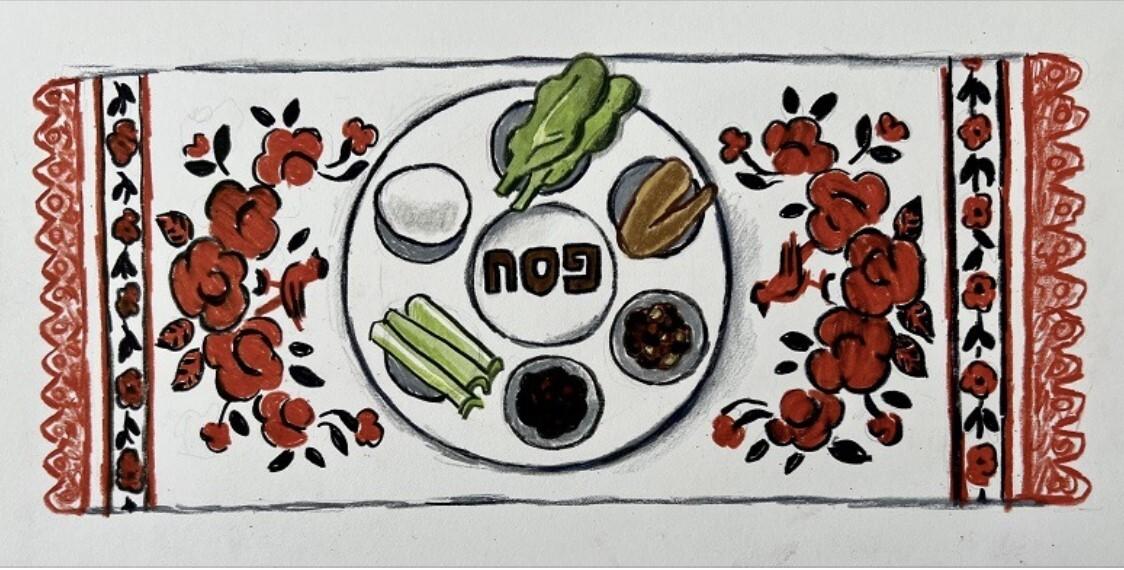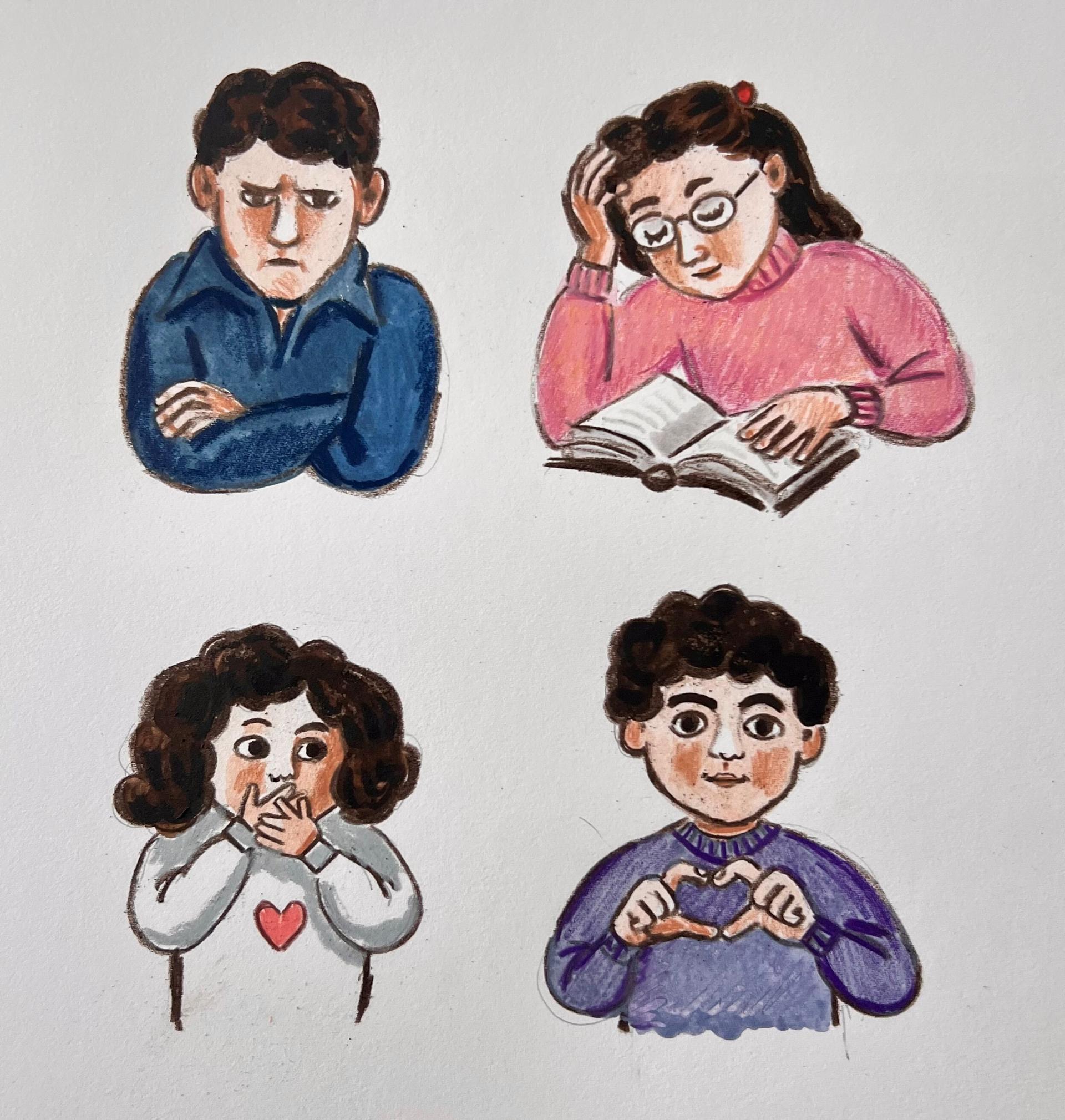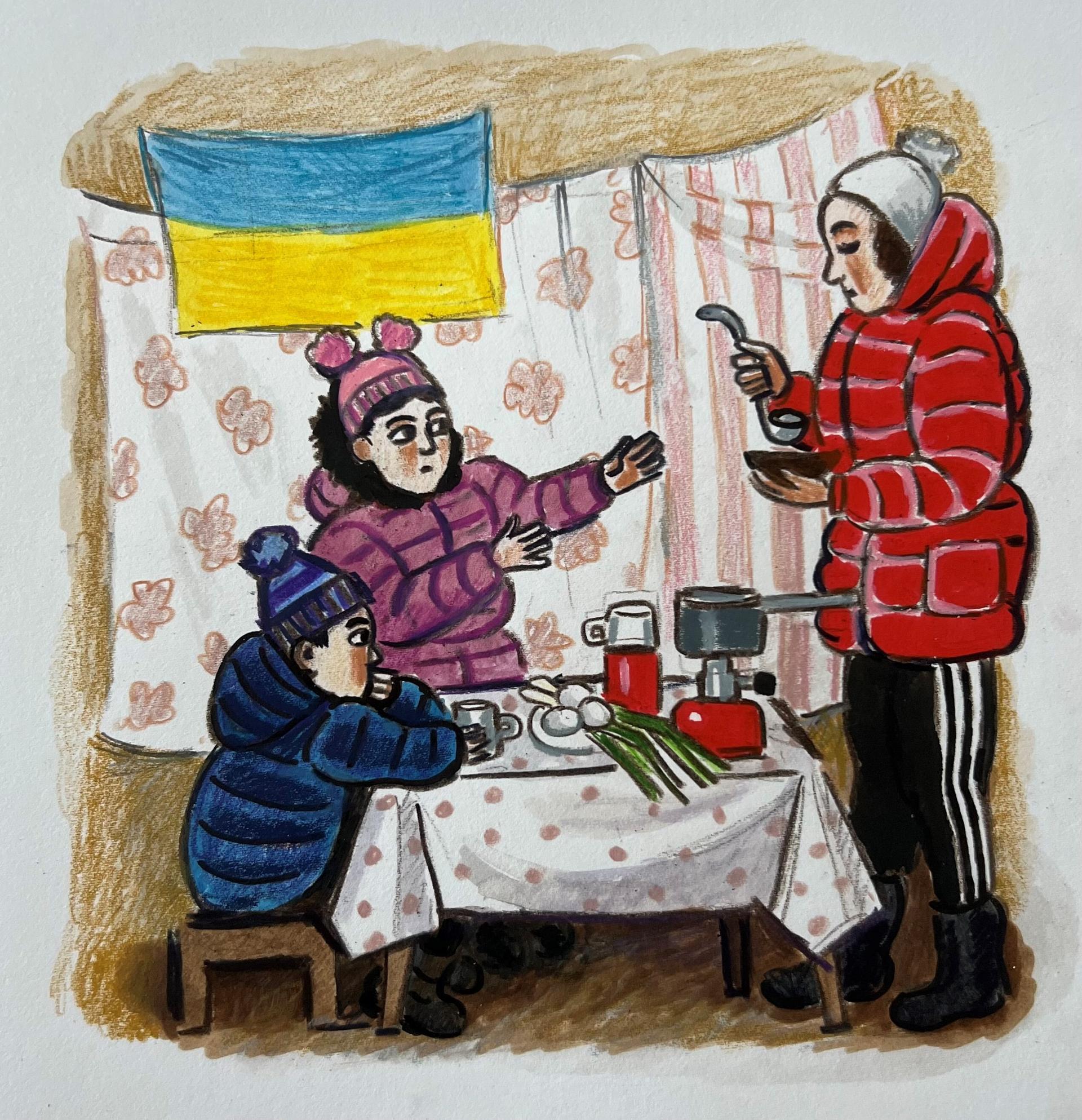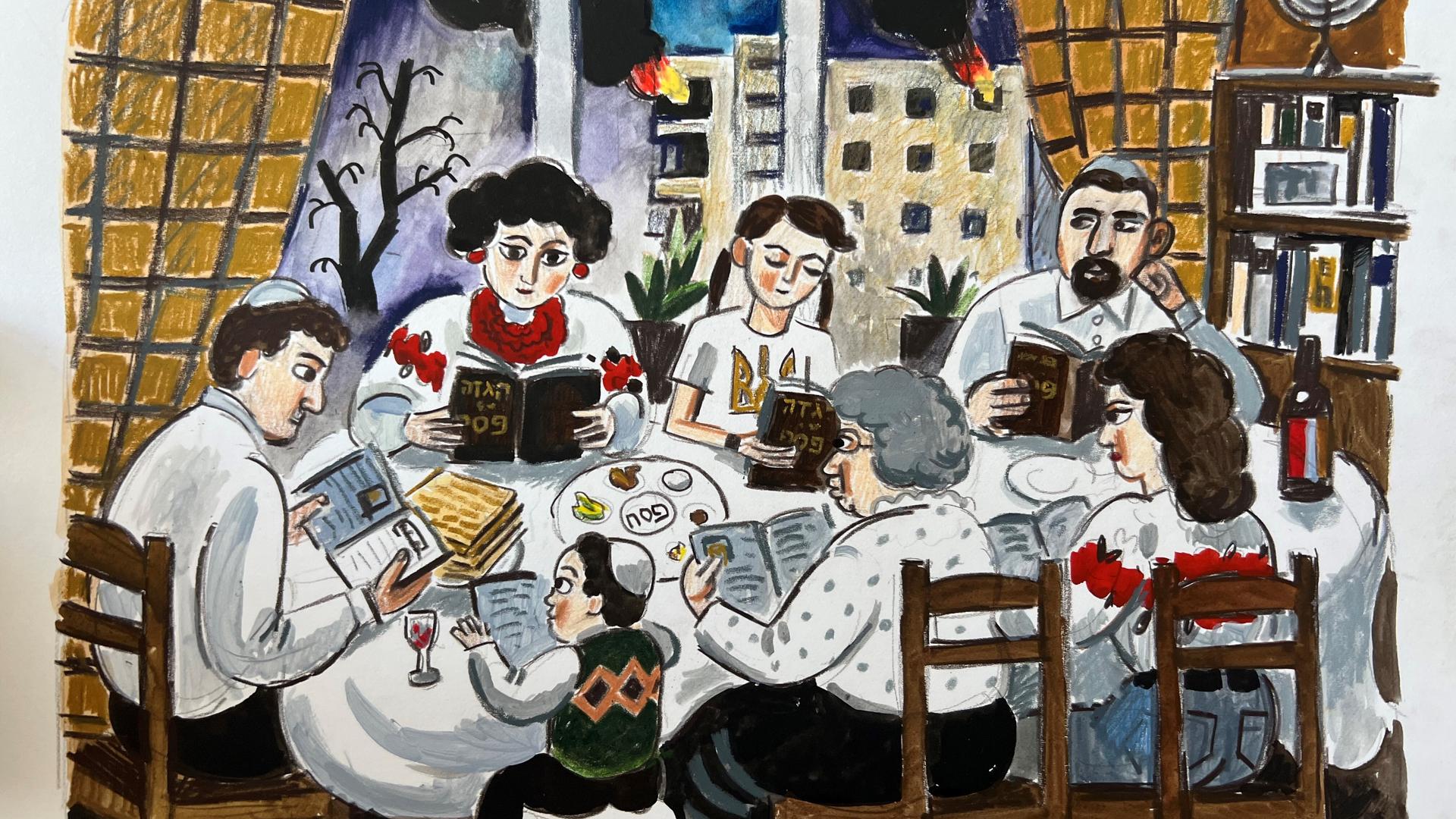For Passover, which starts on Wednesday night and goes through April 13, millions of Jews around the world will be celebrating with family, friends and acquaintances by sharing a festive meal and reading aloud the Haggadah.
The traditional Jewish text chronicles the Passover story and guides those celebrating the holiday through an epic story of redemption.
For many Ukrainian Jews both inside and outside of Ukraine, this year’s holiday is especially meaningful — because for the first time, they’ll be reciting a Ukrainian translation of the Haggadah published by a US-based organization called Project Kesher.

“There has never been a Ukrainian language Haggadah before to our knowledge,” said Karyn Grossman Gershon, CEO of Project Kesher. “After the fall of the Soviet Union, most of the Haggadot that were created were in Russian, and increasingly, that became a real problem for Ukrainian Jews.”
After Russia’s invasion in Ukraine a year ago, many Ukrainians are turning away from the Russian language. The Jewish community there and beyond is also making the shift.
That’s what prompted the Ukrainian Haggadah at Project Kesher.
“We worked with a very wonderful team to not only translate the Haggadah into Ukrainian, but also to adapt it to this moment in history, and that’s something that haggadot have always done, they’ve always adapted,” Gershon said.
Project Kesher’s Haggadah — which is only available digitally for now — includes excerpts from Jewish Ukrainian authors and illustrations showing the reality of life in Ukraine today.

One image shows a family sitting around their Passover table as a building burns in the background.
“It’s also Ukrainian because it really does look at what the Ukrainian people are going through right now,” Gershon said. “Whether it’s in text or in the illustrations, you see the Ukrainian people going through this period of oppression that they’ve experienced under Russia, and their fight, this existential fight for freedom.”
‘Our path from slavery’
Yelena Goltsman, who was born in Kyiv, Ukraine, and immigrated to the US in the late 1980s and lives in New York, said the fight for freedom is an important part of Passover.
“We celebrate our path from the slavery, whatever the slavery means for every individual person at any individual time, to freedom. And this year, it is about Ukraine,” said Goltsman, who has been volunteering with displaced Ukrainians.
She traveled to Poland last year to help people who’d just left the country.
“At the moment they needed our help, and as a Ukrainian Jewish woman, I felt obligated to do all I could.”
These days, Goltsman said that she refers to herself as a Ukrainian Jew. That was not always the case.

“A lot of people called me Ukrainian Jew, and I was always saying, no no, I’m not Ukrainian anything, please don’t call me Ukrainian because what I think about is how Ukrainian, some Ukrainian people were not friendly to Jews just to say the least,” Goltsman said.
Ukraine has a dark history of antisemitism. And many Ukrainian Jews choose to not associate with the country because of that. But Goltsman said that today, Ukraine is moving in the right direction, evolving into a more democratic and free society.
“With years, I started feeling proud of being Ukrainian Jew and I am happy to say I’m Ukrainian Jew; it’s actually a source of pride for me at this point.”
Goltsman said she’ll be using the new Ukrainian Haggadah, and so will many Jewish families who still live in Ukraine.
“When the first time I heard this news, I was like, wow, we really never had it in Ukrainian, like how come? How come we never had it?” said Yelena Pysina, who lives in the city of Cherkasy in central Ukraine.
“Having Ukrainian Haggadah is like bringing you back to the roots, and from another side, it’s something that brings you to the future that we have to start our own Ukrainian Jewish tradition” — at the Passover dinner table, Pysina said.
She said that the war in Ukraine has changed people’s sense of identity and that goes for the Jewish community, too.
The World is an independent newsroom. We’re not funded by billionaires; instead, we rely on readers and listeners like you. As a listener, you’re a crucial part of our team and our global community. Your support is vital to running our nonprofit newsroom, and we can’t do this work without you. Will you support The World with a gift today? Donations made between now and Dec. 31 will be matched 1:1. Thanks for investing in our work!
